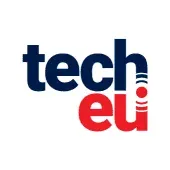Health tech company Qure.ai has been awarded a £3.2 million grant from the U.K. government's Small Business Research Initiative Healthcare in collaboration with the NHS Cancer Programme and the Accelerated Access Collaborative. This funding aims to bolster Qure.ai's efforts in developing technology for the early detection and diagnosis of lung cancer.

Back
The grant is a part of the SBRI competition, which launched in March 2021, and Qure.ai was among the select group of eight startups to receive funding. Their projects focus on leveraging advanced technologies to enable faster and more accurate identification of cancer.
With the new capital infusion, Qure.ai plans to conduct an extensive research program that will analyze the detection of lung nodules on chest X-rays, a key indicator of lung cancer. The program aims to gather evidence and better understand the feasibility of using artificial intelligence (AI) for triaging chest X-rays that raise concerns, allowing for prompt reporting.
CEO and Co-founder Prashant Warier emphasized the urgent need for improved lung cancer detection. He highlighted the aggressive nature of the disease and the lack of early visible signs, which often lead to delays in diagnosis and treatment, resulting in poor outcomes. The current five-year survival rate is a meager 14%, with 30% of patients succumbing within 90 days of diagnosis.
Warier believes that AI technology can revolutionize the early detection of potentially cancerous nodules from chest X-rays. By identifying lung cancer at earlier stages, survival rates can improve significantly, enabling the implementation of less toxic treatments and interventions. However, the varying protocols and high workloads pose challenges, making AI-based solutions invaluable in streamlining detection.
Qure.ai's cancer detection solution is already operational in over 50 countries, serving 500 sites worldwide and benefiting approximately four million patients. This new grant will help the company expand its research and development efforts, bringing them closer to its goal of saving lives through early lung cancer detection and diagnosis.